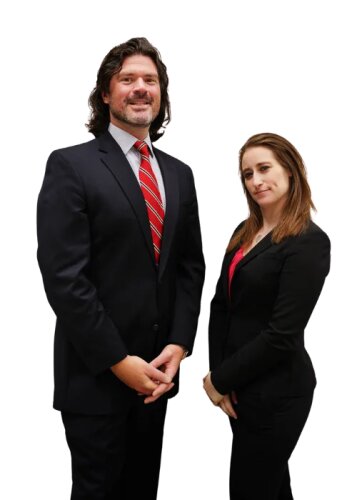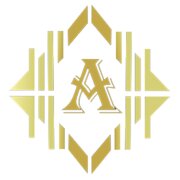Best Business Visa Lawyers in New York City
Share your needs with us, get contacted by law firms.
Free. Takes 2 min.
List of the best lawyers in New York City, United States
1. About Business Visa Law in New York City, United States
In New York City, most business travel for short stays is governed by the federal nonimmigrant visa system, not by city or state law. The B-1 business visitor visa is the common path for NYC executives, entrepreneurs, and professionals visiting for meetings, negotiations, or conferences. These rules apply uniformly across all U.S. cities, including Manhattan, Brooklyn, and Queens.
Key limits and permissions come from federal statutes and regulations. A B-1 traveler may not engage in gainful employment while in the United States, and activities must be limited to legitimate business purposes such as negotiations, contract discussions, or attendance at industry events. The length of stay is determined at entry by the immigration officer, with typical stays lasting up to six months and extensions possible under specific circumstances.
In practice, many NYC-based firms work with legal counsel to prepare robust documentation showing business purpose, financial support, and ties to the home country. This helps establish admissibility and reduces the risk of overstay or misclassification at the port of entry. All guidance for B-1 classifications ultimately rests with federal agencies, even though New York City hosts a large volume of business travel and related activities.
For authoritative guidance on the B-1 program, see official government sources discussing eligibility, permissible activities, and stay durations. These resources explain how federal law governs B-1 visas nationwide, including in New York City.
“Most visitors are allowed to stay in the United States for up to six months on a B-1 visa, with extensions possible in certain cases.”
Sources: Travel.State.Gov, USCIS.
2. Why You May Need a Lawyer
In New York City, a dedicated solicitor or attorney can help navigate complex documentation and avoid common pitfalls. Below are real-world scenarios where legal counsel is especially valuable.
- A NYC tech startup invites a foreign consultant for critical product discussions that may last several weeks. A lawyer can ensure the visit stays within B-1 parameters and avoids any impression of employment in the U.S.
- An international vendor requests multiple NYC meetings over six months. An attorney can prepare a clear travel plan, letters of invitation, and evidence of home-country ties to support nonimmigrant intent.
- A foreign executive attends negotiations with Wall Street clients and potential partners. Legal counsel can help present a robust business purpose packet and manage timing to prevent overstay or misclassification.
- Your B-1 visa was denied or you were previously refused entry. A lawyer can assess waiver options, reapplication strategy, and how to address prior immigration histories in NYC consulates.
- You plan to extend a B-1 stay or pursue a change of status while in the United States. An attorney can evaluate eligibility, risks, and the proper filing path with USCIS.
- You have a complex travel schedule involving multiple entries or potential dual-purpose activities in New York City. A solicitor can tailor a compliant itinerary and supporting documents for multiple trips.
3. Local Laws Overview
Although New York City does not create separate visa categories, federal law governs entry and stay for business visitors. The following statutes and regulations establish the framework that applies in NYC as elsewhere in the United States.
- Immigration and Nationality Act (INA), 8 U.S.C. § 1101(a)(15)(B) - Defines the B-1 nonimmigrant classification and basic eligibility for business visitors. Effective since 1952 with numerous amendments; the INA remains the cornerstone of nonimmigrant visa policy.
- 8 C.F.R. Part 214 - Nonimmigrant visa classifications - Sets out the classification rules for B-1 and related nonimmigrant categories, including permissible activities and documentation required at entry. (CFR updates are ongoing; consult the current version for precise language.)
- 8 C.F.R. § 214.2(b) - Business Visitor (B-1) - Specifies the activities allowed under the B-1 visa, the requirement that admission generally be tied to a temporary business purpose, and the limitations on employment. (Access the regulation here: ecfr.gov)
Recent trends in practice include heightened scrutiny of nonimmigrant intent and the need for thorough documentation when applying at U.S. consulates abroad or at ports of entry. In NYC, firms frequently rely on local counsel to assemble robust business purpose records and to coordinate with consular officers on timing and schedule. For official text and updates, refer to the INA and the CFR sections above.
Practical note: New York City does not regulate B-1 eligibility locally; it remains a federal matter. However, NYC-based companies often engage in cross-border negotiations, joint ventures, and vendor reviews that make precise documentation and timely filings essential.
Key government sources for these laws and procedures include USCIS, the U.S. Department of State, and the Federal Register updates to the CFR. See the links in the next section for direct access.
4. Frequently Asked Questions
What is a B-1 business visitor visa?
A B-1 is a nonimmigrant visa for temporary business activities in the United States. It does not allow employment or labor for hire.
How do I prove a genuine business purpose for B-1?
Provide a detailed itinerary, invitations from U.S. partners, agenda of meetings, and evidence of ongoing business relationships abroad.
When is a B-1 not appropriate for my trip to NYC?
If you will perform paid work for a U.S. company or intend to immigrate, B-1 is not appropriate. Other visa types may be required.
Where do I apply for a B-1 visa?
Apply at a U.S. embassy or consulate in your home country; after approval, you may travel to the United States for your business activities.
Can I extend a B-1 stay while in the United States?
Extensions are possible in some cases by filing with USCIS, but they are not guaranteed and require showing ongoing valid business purposes.
Should I hire a lawyer for a B-1 visa application?
Yes if you have a complex itinerary, prior immigration issues, or need to negotiate an extension or change of status while in the U.S.
Do I need to show ties to my home country?
Yes, you should demonstrate strong ties such as employment, property, or family to indicate you intend to return home after the visit.
Do I need a specific invitation letter for B-1?
A detailed invitation letter from the U.S. business counterpart can help, but it is not the sole basis for approval. Documentation matters more overall.
How long does the B-1 visa process take?
Processing times vary by consulate; typical waits range from a few days to several weeks. Medicals or additional documents can extend timelines.
What costs are involved in a B-1 visa application?
Expect visa application fees, potential attorney fees, and travel costs. Fees differ by consulate and case complexity.
Is a B-1 visa valid for multiple entries?
Many B-1 visas are issued as multiple-entry visas, allowing repeated trips during the visa validity period, subject to approval at entry.
How is NYC-specific business travel treated under B-1?
All B-1 activities in NYC must stay within the allowed business purposes and avoid employment; the city itself does not change the federal rules.
5. Additional Resources
The following official resources provide authoritative information on Business Visa processes and rules.
- U.S. Citizenship and Immigration Services (USCIS) - Official guidance on temporary workers and the Business Visitor (B-1) category, including eligibility and documentation requirements. uscis.gov
- U.S. Department of State - Bureau of Consular Affairs - U.S. visa policy, consular processing, and specific information for nonimmigrant visas including B-1. travel.state.gov
- U.S. Customs and Border Protection (CBP) - Entry requirements and admissibility decisions at U.S. ports of entry, including B-1 travelers. cbp.gov
6. Next Steps
- Identify your precise business purpose and the expected duration of stay in New York City, then gather supporting documents from your company and partners abroad. This helps tailor the visa strategy and potential extensions.
- Consult a NYC-based immigration solicitor to review your plan for B-1 eligibility, ensure documentation aligns with federal requirements, and anticipate potential red flags.
- Prepare a detailed travel plan, including meeting schedules, agendas, and letters of invitation, and organize evidence of ties to your home country.
- Decide whether to apply for the visa at a U.S. consulate abroad or to pursue extension or change of status while in the United States, if applicable to your case.
- Submit the visa application with the correct form, supporting documents, and, if required, fees through the appropriate consulate channel; track status regularly.
- If a visa is denied or you face immigration issues at entry, arrange a consultation with a local attorney to evaluate options and possible reapplication or waivers.
- For ongoing NYC business activities, maintain precise records of travel, business engagements, and any changes to your plans to support future applications or extensions.
Lawzana helps you find the best lawyers and law firms in New York City through a curated and pre-screened list of qualified legal professionals. Our platform offers rankings and detailed profiles of attorneys and law firms, allowing you to compare based on practice areas, including Business Visa, experience, and client feedback.
Each profile includes a description of the firm's areas of practice, client reviews, team members and partners, year of establishment, spoken languages, office locations, contact information, social media presence, and any published articles or resources. Most firms on our platform speak English and are experienced in both local and international legal matters.
Get a quote from top-rated law firms in New York City, United States — quickly, securely, and without unnecessary hassle.
Disclaimer:
The information provided on this page is for general informational purposes only and does not constitute legal advice. While we strive to ensure the accuracy and relevance of the content, legal information may change over time, and interpretations of the law can vary. You should always consult with a qualified legal professional for advice specific to your situation.
We disclaim all liability for actions taken or not taken based on the content of this page. If you believe any information is incorrect or outdated, please contact us, and we will review and update it where appropriate.















